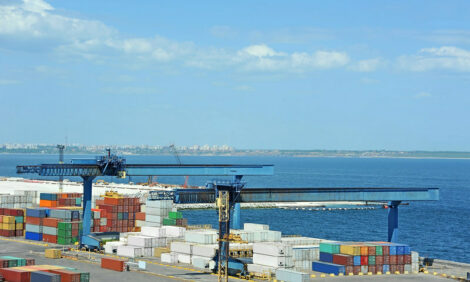



Sustainable Livestock at Committee on Agriculture
GLOBAL - This week FAO will open a week of meetings among member countries that make up the organisation’s Committee on Agriculture, one of its governing bodies, to lay out the priorities and direction for FAO over the next two years.Diplomats and high-level delegates from countries’ line Ministries will meet with FAO technical experts, its leadership, other UN agencies and external observers to review the FAO’s strategy against the backdrop of today’s shifting global political and economic forces.
The Animal Production and Health Division will be advocating for responsible and sustainable livestock sector development, in the face of surging demand for meat and animal-based products.
To meet the food and nutrition needs of the planet’s growing population, resources must be used in the most efficient way possible while minimising waste.
Simply expanding the current ‘business as usual’ model would put food security, ecosystems, human health and livelihoods of the most vulnerable at risk.
At the last session of the COAG, delegates recognized the importance of the livestock sector in supporting FAO’s mandate to combat hunger, ensure adequate nutrition for human development and in providing some of the globe’s poorest people with a means of making a living.
About 1 billion people worldwide depend on livestock, particularly in sub-Saharan Africa and south Asia. In these countries, livestock provides up to 40 per cent of agricultural gross domestic product, yet the sector receives just three per cent of international development funding.
Member countries asked FAO to engage stakeholders on the issue, leading discussions on how to adapt the livestock sector so that it can continue to provide food security and widespread economic and social benefits to people and improve environmental performance at the same time.
Livestock raising presently consumes considerable land, water and crop resources and contributes significantly to greenhouse gas emissions. It is projected that demand for livestock will continue to increase as the world population grows and becomes wealthier, with a growing appetite for meat and animal-based products.
It is also understood that simply ramping up the production systems we have in place would damage the environment and put human health at risk.
It also wouldn’t be able to provide the food necessary for a global population that is expected to top nine billion people in 2050 from just under seven billion today.
FAO is in a unique position to provide a neutral forum for consultation, research and analysis on the livestock sector in order to make the best use of resources while minimizing waste of nutrients and energy throughout the animal production chain. FAO has launched the “Global Agenda of Action in Support of Sustainable Livestock Development” to create an inclusive international forum on realizing the change that is necessary in the livestock sector.
The Global Agenda is seen as a way forward to meet the challenge in the years to come of having to provide for the food needs of a growing population using the same or even fewer resources than those available today.
The Global Agenda is among FAO’s contributions to Greening the Economy, as part of the return to Rio de Janeiro in June for “Rio+20,” aimed at revisiting and re-energizing the global political process of advocating for sustainable development, which started at the UN Conference on Sustainable Development 20 years ago, in Rio.









